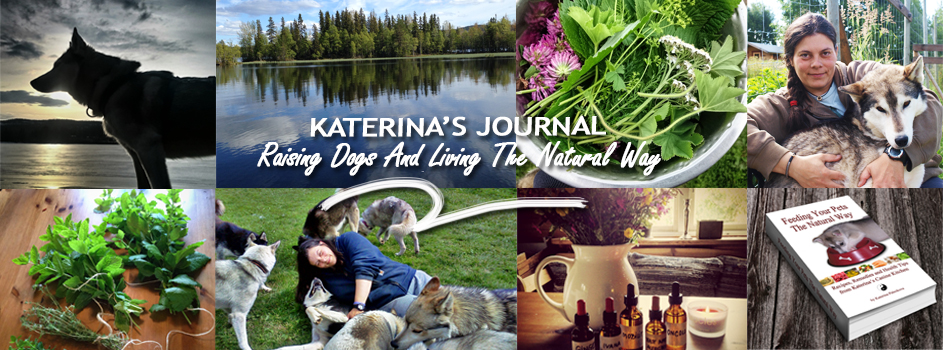Couple friends have been asking lately what we put in our dog "soups" when we feed in the morning or after training, so I thought I would write a bit about that today.
"Let food be your medicine" -- Hippocrates
At Kipp d´Amundsen kennels, we´ve always put a very strong emphasis on the feeding program. What I mean by that, is not only what we feed, but also how we feed, and when.
Naturally, the feeding routines and the consistence of the meals varies a lot depending on the time of the year. Obviously, the dogs won´t drink their "morning soup" in the summer, when they prefer clean fresh water in their buckets, available to them all day round.
In the fall, however, as the temperatures begin to drop, we start to watch the dogs for signs of more thirst and need for more calories. Not only do we rise the amount of kibble and meat in their regular "evening meals", but we usually start watering with a thin morning soup then.
In the beginning, they won´t usually take anything with too much fat in it, unless the temps are really low and it feezes during night/morning. Once it starts to freeze all day long, there is no problem in getting them to like more fatty soup. Another words, their behaviour and the momental weather conditions and excercise level are the key factors in deciding how our canine athletes should be fed.
A morning soup, as we call it, is usually between 1/2-1 l per dog, made of warm water and ground meat. We use meat produced especially for working dogs, which contains beef, tripe, chicken and salmon. In the beginning of the fall season, we skip the formula, containing salmon (to avoid more fat).
For a 50 dog kennel, we use about 3kg of meat in total in the very beginning, which gives you the idea of how much (or how little) per dog it is. We gradulally rise this as training proceeds and temperatures drop, going up to 10-15kg during winter time.
To the meat and water, we always add psyllium husk, to protect the dogs´s digestive tract. No matter what time of the day we feed, prior or post excercise, we always add psyllium to each of the dogs´ meals, drinks or soups.
When it comes to morning soup, psyllium is the only supplement we´d use. All the other supplements are given in the evening/main meal.
To the soup, we often add a bit of kibble. In the more intense training period, we add up to 3kg of kibble to the mixture. We never let the kibble soak in the water. We just add it directly before going out to feed the dogs.
With the after training soup or drink, there is a different aproach. It is time to provide the dogs with not just tasty liquids, but also with quickly digestable nutrition to help get their sugar levels back up quickly so they can regenerate fast and efficiently. Supplements for recovery and joint supplements are added.
The after training drink consists of water (temperature again depends on how warm and how long run the team had and what are the weather conditions) and meat. We use the same meat as for our other meals, but sometimes we add a bit of extra ground liver, ground salmon, ground white fish ground moose meat, or extra fats/oils. For that, we use either Omega 3 salmon oil, cold pressed wheat and corn germ oil or flaxseed oil.
The reason for the different sorts of meat and fats is simple - this way the dogs that worked on the given day, will get their own individual portions of extra protein and fat. Something the rest of the kennel doesn´t need.
The supplements we use in the after training drink are psyllium husk (again), islandic sea corrals (source of many important minerals, especially those that help against muscle cramps and that support and help regenerate the mobility aparatus), MSM, glucosamine (both are important joint nutrition and are most benefitial when used together), B-vitamines in a liquid form, electrolytes (product named Flying Dog Mineral Drink) and a special protein/sacharide recharging supplement for dog athletes called Flying Dog After Drink).
We always make sure that whatever we give our dogs, is healthy and all-natural. Healthy, holistic natural diet is a major part of our dog care philosophy.
And we think that our dogs are a living proof of this philosophy working well. They are healthy, happy, live usually 15-16 years, seldom get sick and rarely are prone to typical sled dog injuries (muscles, joints, etc.).
We believe that good genetics and the right nutrition hand in hand make for happy, healthy and long-aged dogs.



1 comment:
Post a Comment